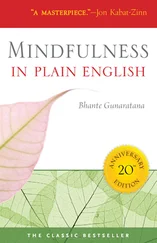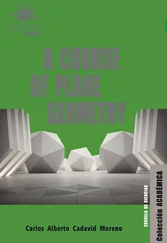Marian Wharton - Plain English
Здесь есть возможность читать онлайн «Marian Wharton - Plain English» — ознакомительный отрывок электронной книги совершенно бесплатно, а после прочтения отрывка купить полную версию. В некоторых случаях можно слушать аудио, скачать через торрент в формате fb2 и присутствует краткое содержание. Жанр: foreign_edu, foreign_language, на английском языке. Описание произведения, (предисловие) а так же отзывы посетителей доступны на портале библиотеки ЛибКат.
- Название:Plain English
- Автор:
- Жанр:
- Год:неизвестен
- ISBN:нет данных
- Рейтинг книги:5 / 5. Голосов: 1
-
Избранное:Добавить в избранное
- Отзывы:
-
Ваша оценка:
- 100
- 1
- 2
- 3
- 4
- 5
Plain English: краткое содержание, описание и аннотация
Предлагаем к чтению аннотацию, описание, краткое содержание или предисловие (зависит от того, что написал сам автор книги «Plain English»). Если вы не нашли необходимую информацию о книге — напишите в комментариях, мы постараемся отыскать её.
Plain English — читать онлайн ознакомительный отрывок
Ниже представлен текст книги, разбитый по страницам. Система сохранения места последней прочитанной страницы, позволяет с удобством читать онлайн бесплатно книгу «Plain English», без необходимости каждый раз заново искать на чём Вы остановились. Поставьте закладку, и сможете в любой момент перейти на страницу, на которой закончили чтение.
Интервал:
Закладка:
Exercise 3
Underscore all verbs and verb phrases in the following quotation:
The Dream of Labor:Ours is not the cause of one class, of one sex, of one tribe, of one city, of one state, of one continent.
It is the wish for a better world where Man shall be Man; where the beast shall become subdued; where everything shall lead to complete development; where the good of each shall be bound up in the good of all; where all shall feel the sorrows of each and shall run to his rescue.
A glimpse of this ideal takes us into the Land of Promise, where peace and plenty shall reign supreme; where brothers shall no longer battle among themselves, but for one another; where the atmosphere shall be laden with love, the love that saves; where the hate that kills shall be unknown; where heart and brain shall work together and shall make life better and more complete; where the fullness of life shall be for all and where men and women shall be as happy at their work as little children at their play.
The mere glimpse into that land makes life worth living, makes work worth doing, makes dreams worth dreaming, gives us hope and faith—the faith we need in the labor for our cause, the faith which shall help us win.— Oscar Leonard.
Exercise 4
We have found that there are a number of words in English which may be used either as nouns or verbs, depending upon the function they serve in the sentence. In the following sentences underscore the nouns with a single line, the verbs with two lines:
1. They man the boats.
2. The man has a boat.
3. The women pass this way.
4. They held the pass for hours.
5. Little children work in the mines.
6. The work of the world is done by machinery today.
7. The armies will cross the bridge.
8. He built a cross of rude stones.
9. The leopard cannot change its spots.
10. We will force a change in the law.
Exercise 5
In the following poem, mark every noun and every verb and verb phrase. You will find the verb phrases in several places divided by the word not , as in I do not obey . Do obey is the verb phrase. We will learn to what part of speech not belongs a little later.
"Captain, what do you think," I asked,
"Of the part your soldiers play?"
The Captain answered, "I do not think—
I do not think, I obey."
"Do you think your conscience was meant to die,
And your brains to rot away?"
The Captain answered, "I do not think—
I do not think, I obey."
"Do you think you should shoot a patriot down,
And help a tyrant slay?"
The Captain answered, "I do not think—
I do not think, I obey."
"Then if this is your soldier's code," I cried,
"You're a mean, unmanly crew;
And with all your feathers and gilt and braid,
I am more of a man than you;
"For whatever my lot on earth may be
And whether I swim or sink,
I can say with pride, 'I do not obey—
I do not obey, I think.'"
SPELLING
LESSON 2
The twenty-six letters in the English alphabet are divided into vowels and consonants. A vowel is a letter which represents a sound of the human voice but slightly interrupted by the vocal organs. The vowels are a , e , i , o and u . All of the remaining letters of the alphabet are consonants. A consonant is a letter which represents a sound of the human voice greatly obstructed by the vocal organs.
Consonant is from the Latin con , meaning with , and sono — I sound . So it means literally I sound with .
The consonants are produced by union of the breath with the vocal organs. The consonant sounds are so called because they are always "sounded with" a vowel; they are used only in combination with vowels in forming words or syllables.
In English a consonant alone never forms a word or a syllable. Sound the different consonants b , c , d , f , g , h , j , k , l , m , n , p , q , r , s , t , v , x and z , by themselves and you will see how the sound of the breath is obstructed or changed by the use of the vocal organs—the lips, the tongue, the teeth, etc.—in making these various sounds.
W and y are sometimes vowels and sometimes consonants. W and y are vowels when they are used with another vowel representing a vowel sound as in awe , new , joy , eye , etc. Y is sometimes used as a vowel by itself as in by , cry , etc. W and y are consonants when they are used at the beginning of a syllable or before a vowel in the same syllable as in wine , twine , yield and year .
Look up the meaning of the words in this week's lesson. Master the spelling and use them in sentences of your own construction.
Monday
Reason
Evolution
Justice
Thorough
Beauty
Tuesday
Assertive
Review
Surprise
Basis
Separate
Wednesday
Interrogative
Period
Capital
Capitol
Function
Thursday
Example
Contain
Imperative
Question
Speech
Friday
Method
Various
Familiar
Industry
Alphabet
Saturday
Travel
Sense
Cents
Sail
Sale
PLAIN ENGLISH
LESSON 3
Dear Comrade:
In this lesson we are taking up a short study of the different parts of speech. In later lessons we will study each part of speech more thoroughly but this lesson covers the ground quickly and briefly. It is sufficient, however, to form a basis for our understanding of the evolution of language.
You will see, as you study this lesson, how each part of speech has been added to meet a growing need. There are many, many thousand words in the English language, but they can all be grouped under these eight parts of speech, for they all answer in some way to one of these great needs.
The object in studying grammar, as in studying any other science, is not to fill one's mind with a great many unrelated facts—facts which may or may not prove useful to one hereafter. The object of all study is to develop one's power of observation and one's ability to think. Added to this must be the practical ability to make use of this knowledge. Here the study of grammar has an advantage over the study of every other science. It deals with words, something which we use every day.
You do not need any laboratory or expensive apparatus in order to study grammar. All that you need lies ready to your hand. And in addition to this the knowledge which you gain is something which is of practical use to every man and woman no matter what their work, no matter what their place or position in life may be.
Remember that dogmatism has no place in the study of grammar. "Grammarians are the guardians, not the authors, of language." We do not say, "You should say this or that, or you violate a rule of grammar," but we say "The common usage among those who use good English is thus and so." If we do not believe that the common usage is the best usage, then we follow the democratic method of seeking to change the common usage into that which we consider the more sensible way. Thus, those who advocate simplified spelling have not sought to pass a law whereby every one should be compelled to spell words exactly as they sound, but they have striven to influence our writers and people in general to use this more sensible way of spelling words.
Читать дальшеИнтервал:
Закладка:
Похожие книги на «Plain English»
Представляем Вашему вниманию похожие книги на «Plain English» списком для выбора. Мы отобрали схожую по названию и смыслу литературу в надежде предоставить читателям больше вариантов отыскать новые, интересные, ещё непрочитанные произведения.
Обсуждение, отзывы о книге «Plain English» и просто собственные мнения читателей. Оставьте ваши комментарии, напишите, что Вы думаете о произведении, его смысле или главных героях. Укажите что конкретно понравилось, а что нет, и почему Вы так считаете.












